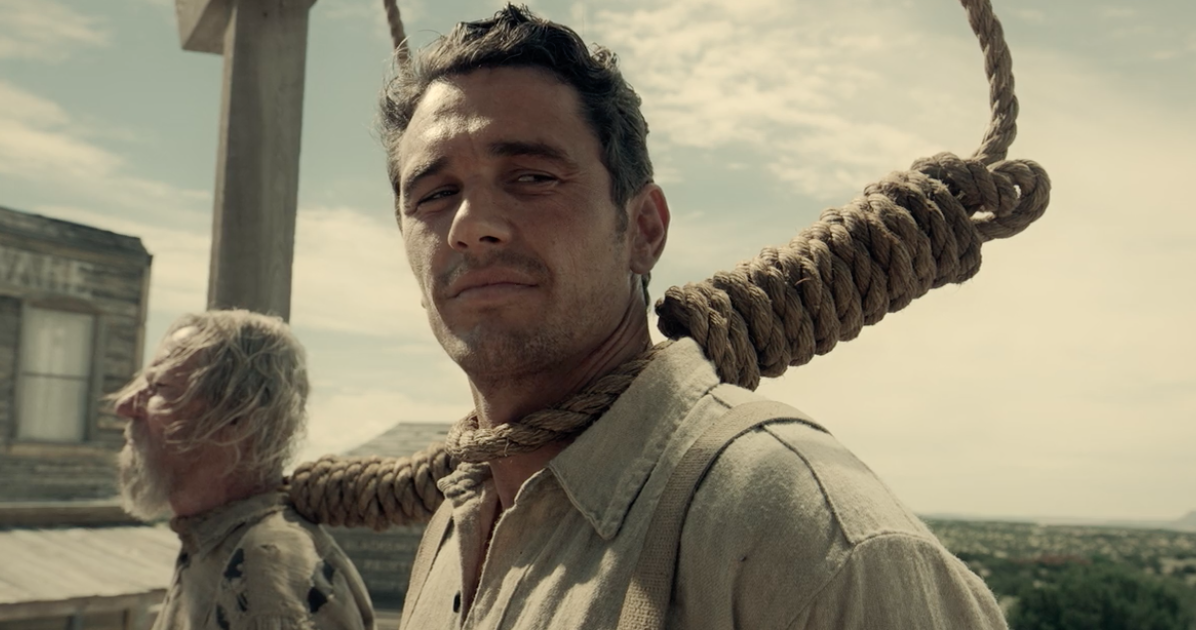The Coen brothers, with their knack for a twisted take on classic styles, have accomplished a magnificent work of art. From the first moments of its fairy tale beginning, The Ballad of Buster Scruggs is a one-of-a-kind treasure.
It’s hard to decide which of the six short films in the series is the best. Each is profoundly different in style, but elements of fantasy, horror, action and tragedy are present in each.
The shorts range from dark comedy to serious inquiries into the nature of humanity. They use the style and genre of Westerns as inspiration, but are never held back by the cliches of ages past. Buster Scruggs toys with the genre with almost too much fun — these films leave more questions than they do answers and always end right when you want to hear more.
The first short, “The Ballad of Buster Scruggs,” is enchanting. It breaks the fourth wall and mixes cartoon tropes with superfluous and gory violence. Be prepared for spewing blood (lots of it), screams of agony and lots of tough-looking men slowly walking towards each other, clanking their spurs and itching for their guns.
[Read more: Recapping the confusing, probably fake Quentin Tarantino-Ennio Morricone beef]
“Near Algodones” is tragically ironic, but certainly no less bloody. If you’ve ever felt the need to see multiple arrows go through multiple necks, this is the short for you. There is a traditional moral-story structure with a classic warning of how both our decisions and random luck combine to determine our fate.
A showman, played by Liam Neeson, travels Western towns with a performer who is missing both arms and both legs and delivers classical orations in the utterly haunting “Meal Ticket.” A nearly unrecognizable Harry Melling — who played Dudley in the Harry Potter franchise — now plays the young amputee, speaking only when orating and acting almost entirely through facial expressions. The tragedy and absurdity of the film is excruciating to watch. We discover the fate of the young artist at the same horrifying moment he does, hoping it will not end this way but feeling the desperation of being unable to escape.
“All Gold Canyon” is the most visually beautiful of the shorts, filled with wide landscape shots with “no sign of man nor the handiwork of man.” The protagonist is the most honestly likable of characters, and manages to bring to life the stout ideal of patriotism that typically seems like a far-off dream in the American West. But don’t be fooled — this rare peaceful valley doesn’t stray far enough off-theme to ignore the blood and murder required of a Western fable.
The longest of the shorts, “The Gal Who Got Rattled,” is also the most enrapturing. Alice Longabaugh (Zoe Kazan) captures something the other fables fail to see — the rare quality of having a woman as the main protagonist. Instead of needing to appear stoic atop a horse and whipping out a pistol, Alice is the first to truly be lost in the sweeping prairies, unable to find peace. Her character relies the least on manufactured confidence, quite open to the fact that she never had any “certainties” in life. And though it ends on the same quick, tragically ironic note as many of the others, it is the most realistic and emotional of the fables.
[Read more: Review: ‘Green Book’ simplifies race, but prevails with a feel-good approach]
“The Mortal Remains” is the most philosophical, leaves the most to unpack and is my personal favorite. Deceptively simple, it is a supernatural tale that questions man’s purpose and the passage between life and death, all while keeping the humor and interest we’ve come to expect. It leaves out the trademark bloodiness of the series but keeps the anticipation of upcoming horror. It is a short — and anything but sweet — end to the series.
Each story is profoundly unique, tied together through a storybook format and a unforeseen, often tragic twist. Regardless of which is your favorite, “The Ballad of Buster Scruggs” will draw you in, and “The Mortal Remains” will leave you wanting more.
4/4 Shells.



